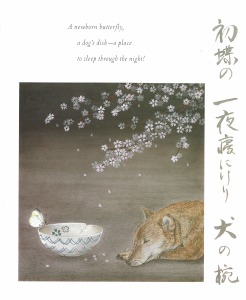Happy National Poetry Month! Today we’re celebrating by looking at one of my favorite forms: haiku. Just a few lines, less than 20 syllables, haiku often appear easy because they’re so short. But, as anyone who has tried to write a picture book can tell you, often the shortest forms are the most difficult!
Haiku (the plural of which is also haiku) originated in Japan. They are short poems that are traditionally 17 syllables, often in three lines. In his afterward to Cool Melons- Turn to Frogs!, Lee & Low’s picture book biography of Japanese haiku master Issa, author Matthew Gollub explains more about what makes a haiku a haiku:
Japanese poets [wrote] haiku for centuries. Traditional haiku describe a single moment in nature, something that the poet observes or discovers. As such, a haiku can refresh or enlighten us by calling to mind life’s passing details.
A haiku, because of its brevity, resembles a quick line sketch. It’s up to the reader to imagine the details and to make the picture complete. In a sense, we can think of a haiku as a telegraph; for example: “Should arrive Tuesday, supper time.” From this short message, we can infer that, weather permitting, the sender will arrive early on Tuesday evening, and that after the long, tiresome journey she would appreciate a good meal.
Often, haiku describe two events side by side, such as: “Plum tree in bloom—/ a cat’s silhouette/ upon the paper screen.” Does the silhouette of the plum tree also appear on the paper screen? Does the plum tree in bloom suggest the warmth of a spring day? Again, it’s up to the reader to imagine how or if the two things are related.
Haiku tend to be simple and understated, so there’s never one “correct” way to interpret them. The idea is to ponder each poem’s imagery and to discover and enjoy how the poem makes you feel.
The fact that haiku are short does not mean that the reader and writer get to do less work; in contrast, it means that readers must use their imagination to meet the poet halfway, as poet James Dickey encourages readers of poetry to do always. With that in mind, here! Have a haiku:
A newborn butterfly,
a dog’s dish—a place
to sleep through the night!
What does the poet give you? What does your own imagination add?
Happy National Poetry Month!









